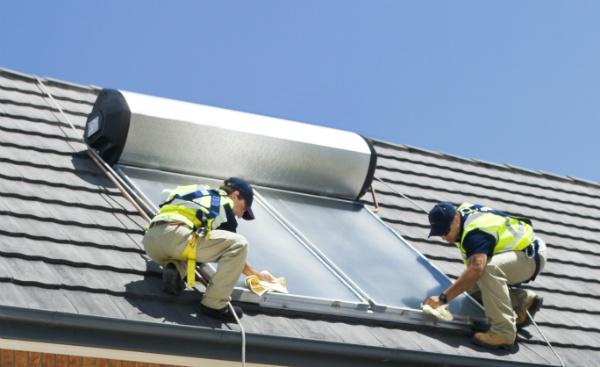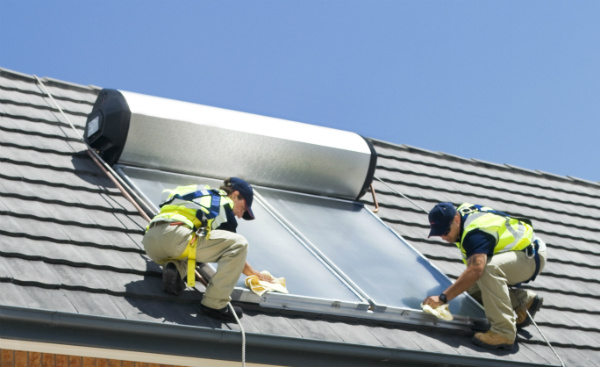If you are still using an out-dated traditional hot water system, you are wasting money. There are more efficient and innovative alternative technologies that will provide you hot water for a fraction of the cost.
Traditional Hot Water Systems
Traditional water heaters are not very efficient. They cause hot air from the bottom of the tank to rise up through its middle and out the chimney – this process continues all day. At the very least, you should install a fan to function as a power vent to prevent this waste of energy.
When you turn the water heater on, the fan will also turn on and blow the exhaust outside of your home. When you turn off the water heater, the fan also turns off, and you will not be continually venting the heat the whole day.
Statistics show that heating water takes up around one-fourth of the energy use of an Australian household. If the cost of electricity continues to go up, it makes perfect sense for families to think about making the household’s hot water system more efficient.
Solar Hot Water and Hot Water Heat Pump Systems
Right off, you can choose from two basic water heaters that are utilising alternative technology to increase energy efficiency and minimise emissions. These two options are solar hot water, and hot water heat pump systems.
A solar hot water system can provide between 50 – 95% of the hot water demand of a typical home. The actual amount depends on where you live. If you are living in Hobart, this system will supply 50% of your hot water needs. The amount is higher, about 95% if you are residing in Darwin.
Solar collectors are used by this system to gather energy from the sun. When the water passes through these collectors, it is heated. The water then flows into an insulated storage tank for later use.
Hot water heat pumps use the same technology as that of reverse-cycle air conditioners and refrigerators. The energy requirement of this system for one year is 80% less than the energy requirement of a standard hot water system.
This system extracts low-grade heat from the air, and then concentrates this heat and dumps it into the water in a storage tank. It can operate without the use of direct solar energy. However, it will be more efficient if higher ambient temperature is used.
Of course, changing from your conventional hot water to a hot water system using alternative technology will entail additional expense. However, to help you shoulder the initial cost, there may be government rebates available depending on your location.
You can check the government websites in your state to view the current available incentives.



